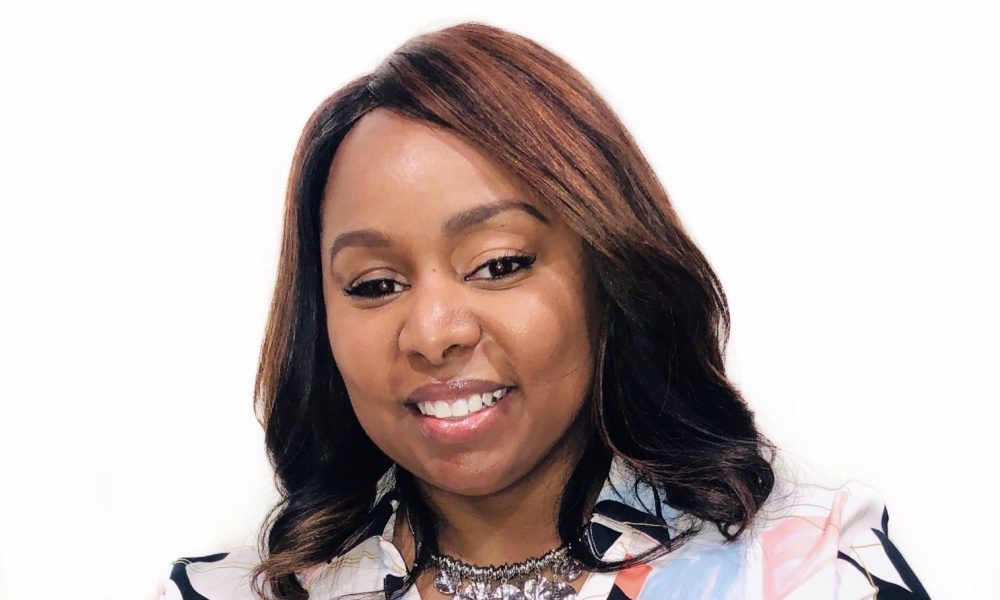

Today we’d like to introduce you to Charletra Sharp.
Charletra, before we jump into specific questions about the organization, why don’t you give us some details about you and your story.
Sure. I was born and raised in Arlington, and returned to the area after college. I now joined by my husband, Aaron, and two-year old son, Jackson. My professional experience working with financial education and entrepreneurs began as an undergraduate student at Baylor University’s School of Social Work where I interned with a small nonprofit, Faith Covenant Support Services. There, I worked with clients in an Individual Development Account (IDA) program and developed a financial literacy program for youth in partnership with the Doris Miller YMCA.
As a graduate student at Washington University in Saint Louis, I spent three months in Hohoe, Ghana (West Africa) working with Christian Rural Aid Network, a microfinance organization where loans were given to groups of low-income entrepreneurs who were not able to access capital, independently. Although my original career goal was to have a private practice in clinical counseling, community-based work and asset development intrigued me, allowing me to use my personal finance and planning skills to impact families in an economical way. My passion increased after taking a community development class in East Saint Louis with my mentor and former professor, Jack Kirkland.
During my time in graduate school, I also served at the Third Ward Neighborhood Council and the Gamaliel Foundation. Both organizations introduced me to social policy, government programs, affordable housing, and community organizing which qualified me for my first post-grad position as a Contract Compliance Specialist with the City of Fort Worth’s Housing Department. I always tell others that the City was my training ground… It’s where I learned regulations, how to audit, project management and most of all, politics!
Fast forward, after serving as the Director for Career and Alumni Services at the Baylor School of Social Work, and Interim Director of the Office of Homeless Solutions at the City of Dallas, I now serve as the Director for Economic Mobility with the Center for Transforming Lives (CTL).
Overall, has it been relatively smooth? If not, what were some of the struggles along the way?
Initially, it seemed to go smoothly because I killed entry-level and middle-management positions. My attention to detail and ability to implement programs, manage budgets, etc. allowed me to excel in every assignment. I stood out among other young professionals… after all, I was an articulate, Black female with a private school education and lived experience in low-to-moderate income neighborhoods. I was able to relate to the communities that we served in a way that leadership often could not.
Senior management and directorship are where I have been stretched. I had to deal with ethical dilemmas, making difficult decisions where neither option was the preferred option, and exposed to the ugly in leadership that can break you if you’re not grounded.
Some of my struggles were just a part of the transition from serving as a manager, where I spent more time in the weeds with program implementation and advocating for my team, to directorship where my role was to direct… create vision… strategize… get uncomfortable and stretch others for the greatest impact.
Other challenges were the result of encountering others who were also going through their learning curve and transition as a leader. All leaders respond to the anxiety and stress of leadership in different ways, and because we all do not have accountability partners nor effective coping skills, we often damage others along the way. This is why I am a firm believer that a mentor is needed in every aspect of your career path…not any mentor, but one who is able to tell you that you are wrong and you accept the feedback.
But I must admit, I’m a little strange… I embrace challenges. I’m the student who loved having the most difficult teacher or supervisor who others despised… I have always learned the most under those circumstances.
Please tell us about the organization.
As I mentioned, I now serve as the Director for Economic Mobility with Center for Transforming Lives, a Tarrant County nonprofit that works side-by-side with women and children to disrupt the cycle of poverty through comprehensive homeless services, early childhood education, and financial prosperity services.
I should mention that during my time with the City of Fort Worth, I was also selected to participate in the National Forum for Black Public Administrators Mentor Program, where I was required to complete a career plan. That 12 year old plan confirmed that every position and relationship has prepared me for now. I use the plan as a guide when making career decisions. So, of course, I reviewed it before joining the CTL team, and these words are what confirmed my decision: “My long-term goal is to become a recognized expert in underrepresented communities, known for professionalism and integrity, known as their greatest advocate. My role as a Director will equip me to take my local government expertise back to the heart of the communities.”
I wrote those words in 2008… and 11 years later my dream position was created. A position that is a perfect blend of every role I have held, professionally and civically.
In my position specifically, I lead a team of coaches who use a strength-based, results-oriented approach to working with clients to improve their financial stability through budgeting, savings, improving credit (average participant increases score by 93 points), job support and training, and/or support with their small business. I’m proud to be responsible for developing CTL’s Economic Mobility Center concept, where bundled entrepreneurial services are provided and designed with women and children in mind. The pilot EMC is operating at the Economic Mobility office suite in Arlington. More details about this innovative initiative will be shared after CTL launches its small business report developed in partnership with Next Street, a national consultant, and funded by JPMorgan Chase. I am super excited about this report… It’s actually an Action Roadmap rooted in the data that reveals the disparities in Tarrant County across race and gender. According to the American Community Survey, the Tarrant County zip codes with the highest concentration of poverty, also have an average self-employment rate that exceeds the county rate! However, these same communities have challenges accessing the capital, education, and network needed to develop a sustainable business.
I’m super excited about the EMC because I also own Sharp Destinations, which is my home-based travel business that assists the community with all tourism-related activities. This includes all-inclusive packages, rental vehicles, cruises, honeymooners, and even staycations.
My most proud moment related to Sharp Destinations is when I took the step of faith to use my planning skills to help others, while also supplementing my household’s income. The EMCs will be able expand the skills of other mothers like me who are using entrepreneurship as a way to create generational wealth and improve the quality of life for their children.
Do you feel like our city is a good place for businesses like yours? If someone was just starting out, would you recommend them starting out here? If not, what can our city do to improve?
Yes, the Dallas/Fort Worth area is an awesome place for businesses because the metroplex is so diverse and the demand for diverse services is great. Home-based businesses can thrive by taking advantage of the resources offered by local business resource partners such as Sparkyard, the Tarrant Small Business Development Center, and SCORE Fort Worth. Nonetheless, I recognize that awareness of these services is sometimes an issue but the Center for Transforming Lives is working to create a pipeline for entrepreneurs in communities that often feel left behind. We want to help small businesses, including those impacted by COVID-19, to access low-interest loans and grant programs like those created by Tarrant County and the City of Fort Worth. There are a lot of entrepreneurs who are intimidated by the application processes so they just don’t apply at all.
I believe that the key to disrupting the cycle of poverty lies in financial strength. Through programming like CTLs’ Economic Mobility services, dedicated to income-constrained families, we provide our clients with the education and tools needed to become financially independent. Once equitable services are brought to underserved neighborhoods, we will see a reduction of economic disparities across race and gender, and a rise in financially secure families throughout Tarrant County. With the increased conversations around racism in America, it’s even more essential for anti-racism allies to offer culturally-relevant services to minority communities for economic advancement. I invite concerned citizens and stakeholders to contact me to become a partner in implementing the evidenced-based strategies that will transform the narrative and strengthen the ecosystem for all lives.
Contact Info:
- Address: 512 W. 4th Street, Fort Worth, Texas 76102; 401 W. Sanford Street, Arlington, Texas 76010
- Website: www.transforminglives.org
- Phone: (817) 332-6191
- Email: csharp@transforminglives.org
- Instagram: @transforminglivesfw
- Facebook: www.
facebook.com/CTLEcoMob - Other: https://www.linkedin.com/company/centerfortransforminglives


 Image Credit:
Image Credit:
Photos provided by Center for Transforming Lives
Suggest a story: VoyageDallas is built on recommendations from the community; it’s how we uncover hidden gems, so if you or someone you know deserves recognition please let us know here.


















